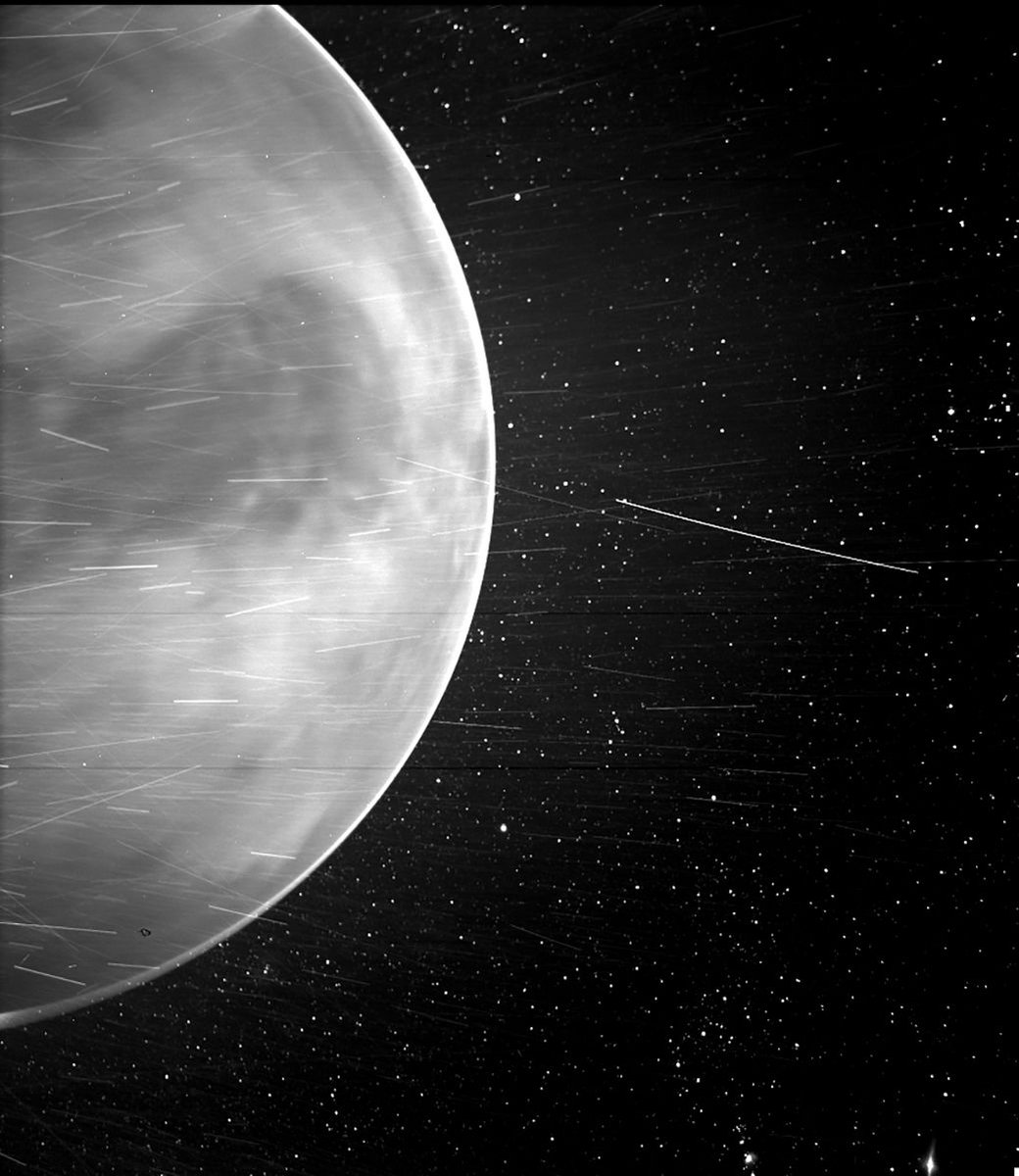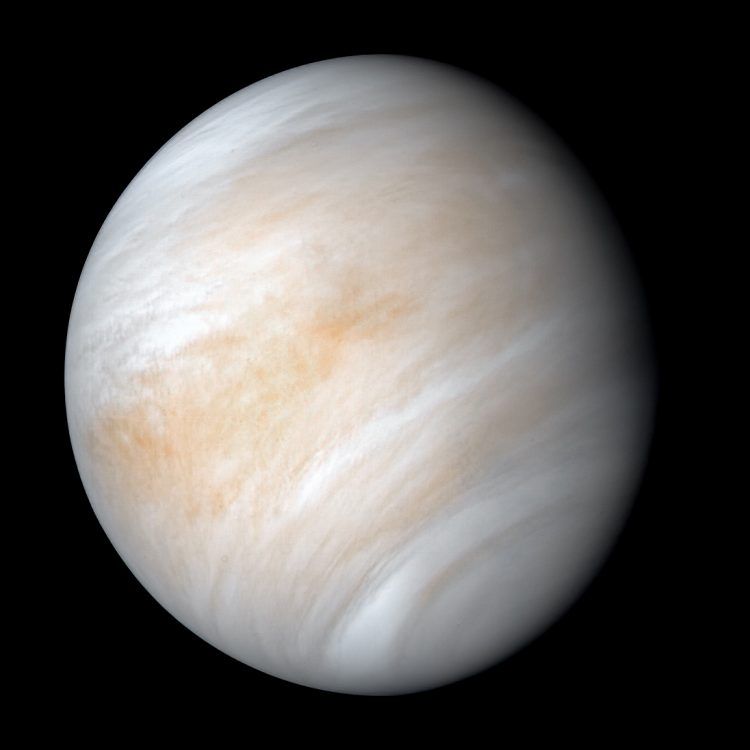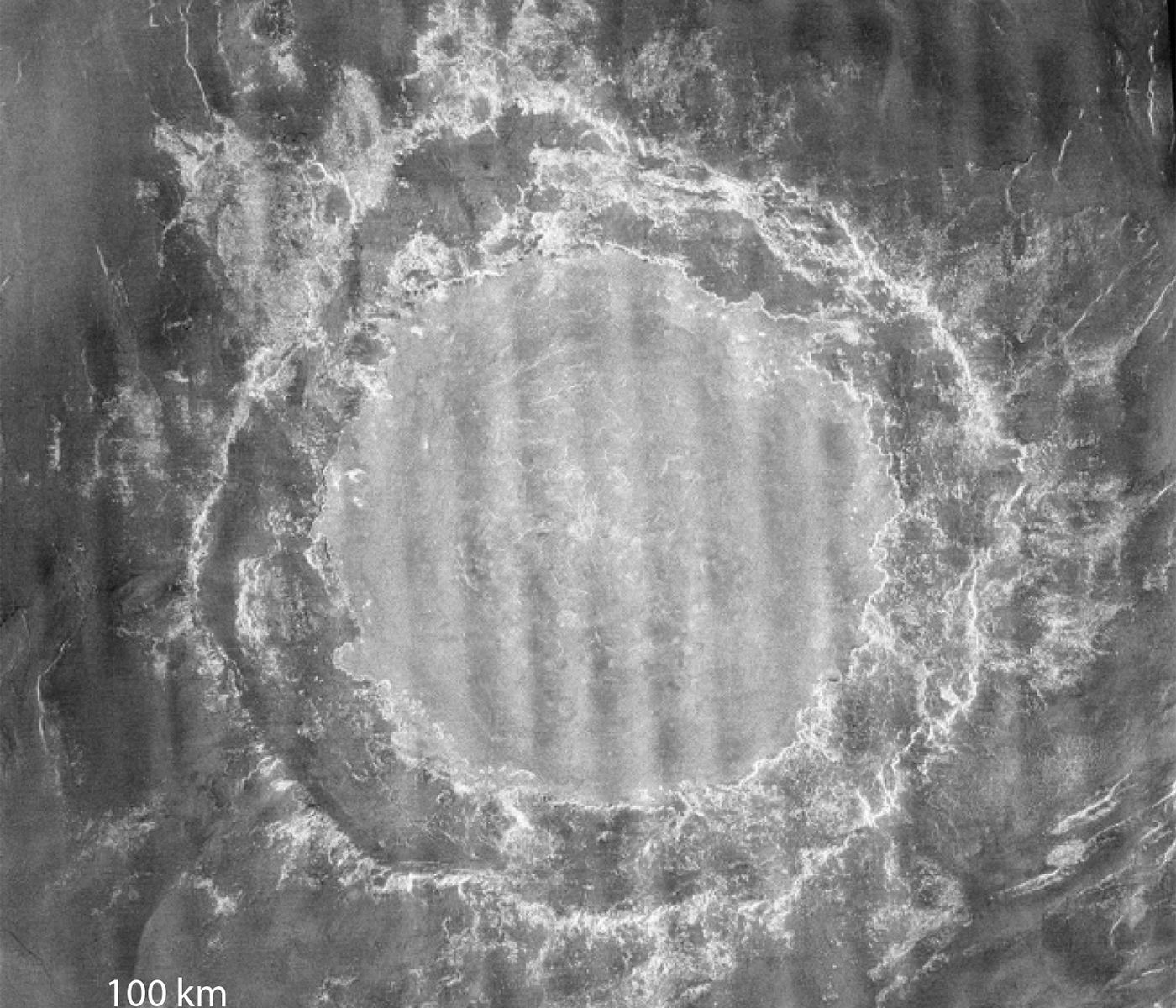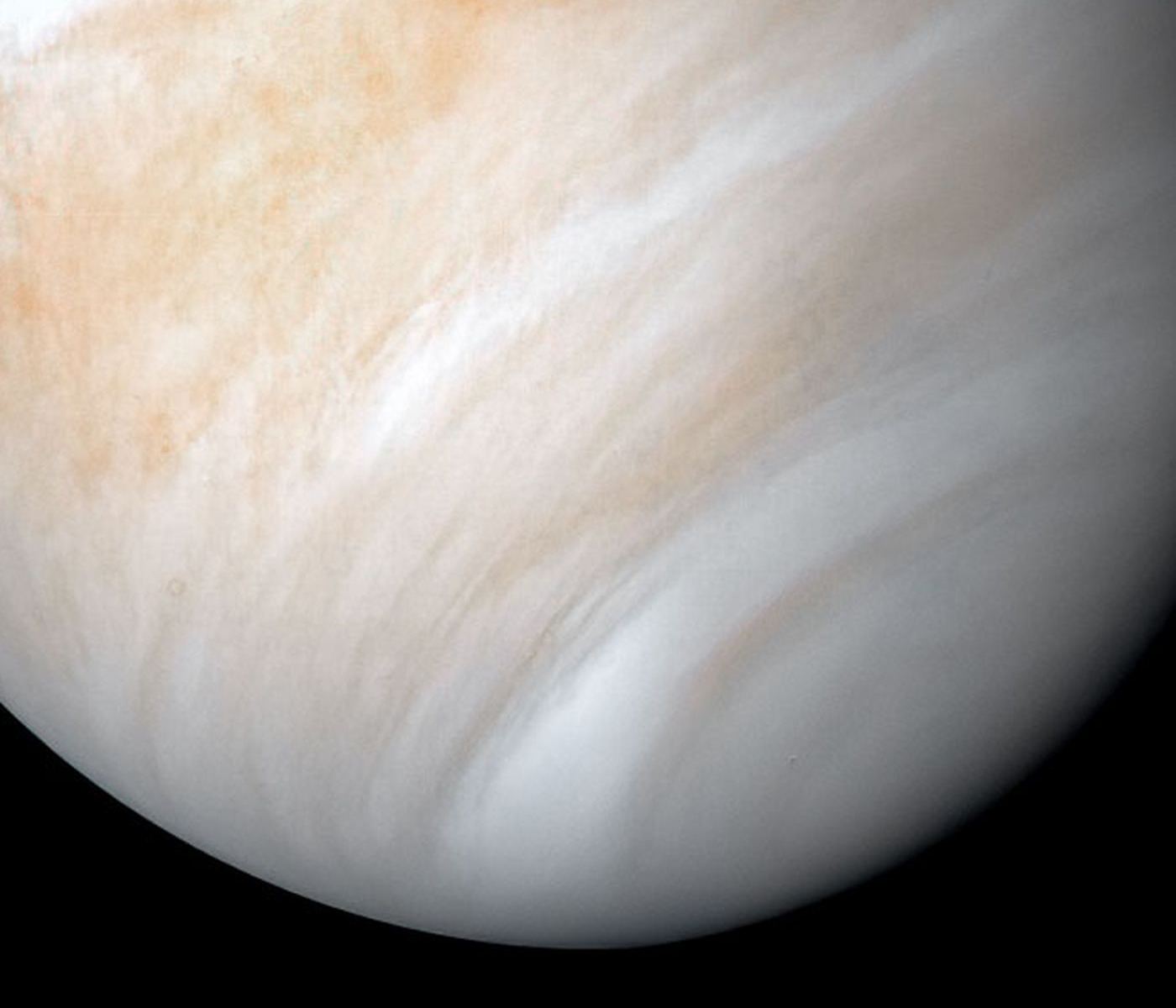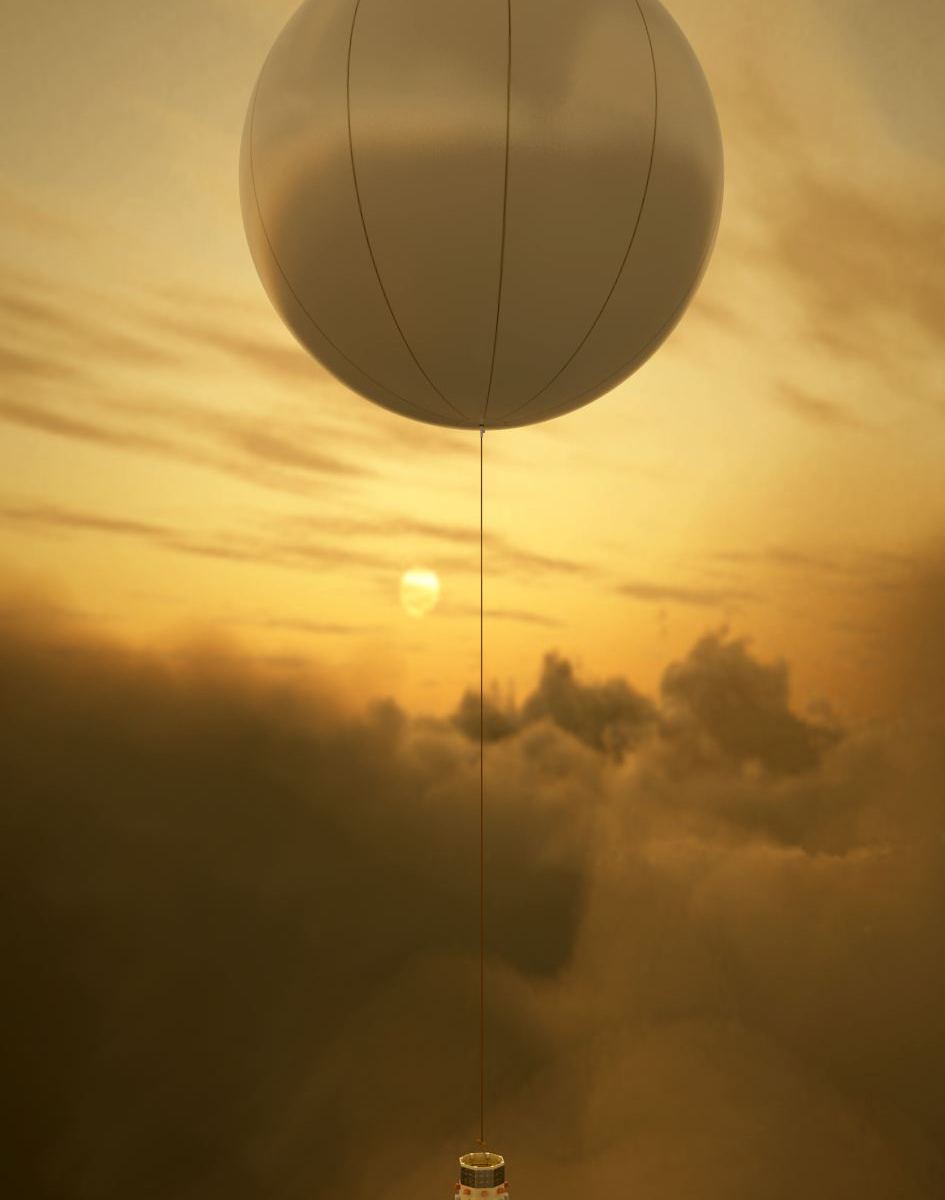The Parker Solar Probe has been getting in a lot of extracurricular activity lately. Originally designed to observe the Sun, the probe has been taking full advantage of its path through the solar system. In addition to snapping pictures of comets, the probe has repeatedly focused on Venus, including capturing an image peering underneath the cloud cover of the notoriously hot world. Now a team led by Glyn Collinson of Goddard Space Flight Center found another serendipitous discovery in the data Parker collected during its latest flyby in the summer of 2020 – the probe actually flew through Venus’ upper atmosphere, and that atmosphere appeared different than it was almost 30 years ago.
Continue reading “What we’ve Learned About Venus From the Parker Solar Probe”Parker Solar Probe Captured Images of Venus on its way to the Sun
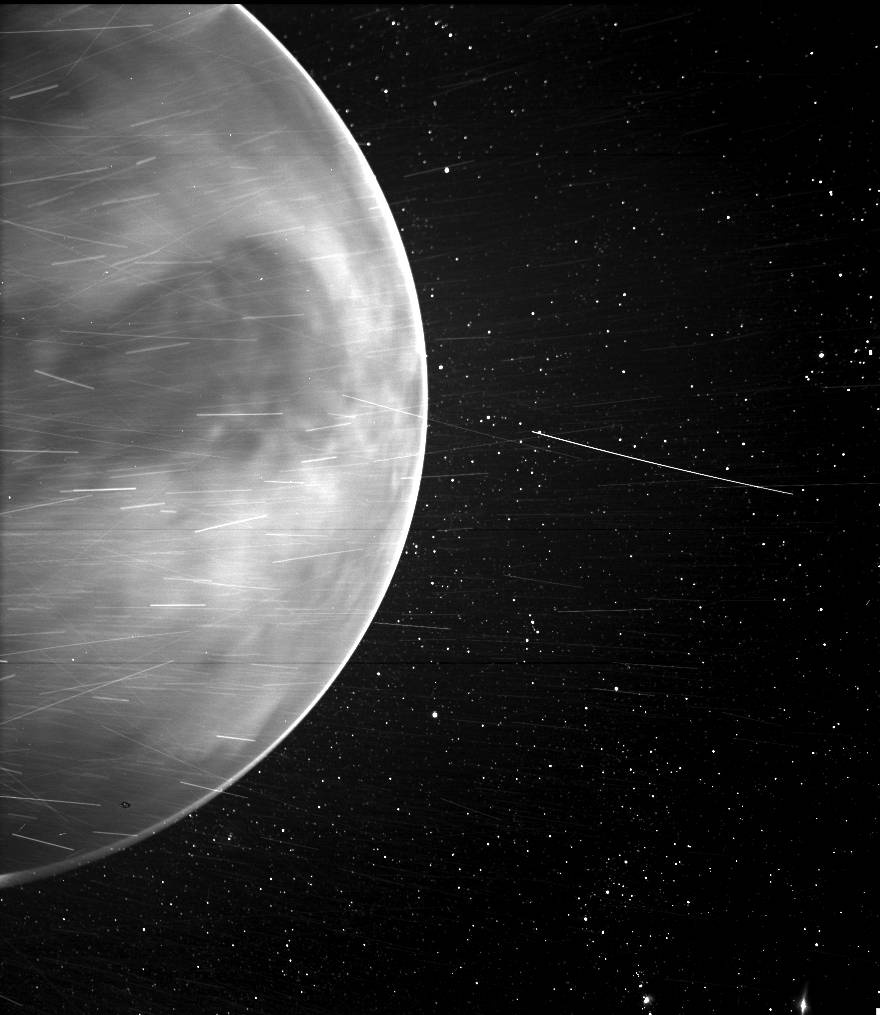
Last summer, the Parker Solar Probe flew past Venus on its way to fly closer to the Sun. In a bit of a surprise, one of the spacecraft’s cameras, the Wide-field Imager for Parker Solar Probe, or WISPR, captured a striking image of the planet’s nightside from 7,693 miles (12380 km) away.
The surprise of the image was that WISPR – a visible light camera – seemingly captured Venus’ surface in infrared light.
Continue reading “Parker Solar Probe Captured Images of Venus on its way to the Sun”What Looked Like Phosphine On Venus Might Actually Just Be Sulfur Dioxide
There’s nothing like a good old fashioned science fight. When the discovery being challenged is one of the most public and intriguing of the last year, it’s bound to be even more interesting. A team of scientists, led by Andrew Lincowski and Victoria Meadows at the University of Washington (UW), and involving members from a variety of NASA labs and other universities, has challenged the discovery of phosphine in the atmosphere of Venus that was first announced last year. Their explanation is much simpler: it was most likely sulfur dioxide, one of the most abundant materials already known to be in Venus’ atmosphere.
Continue reading “What Looked Like Phosphine On Venus Might Actually Just Be Sulfur Dioxide”A Crater on Venus Indicates the Planet Hasn’t Been Volcanic for a Long Time
Venus may not have had Earth-like tectonic plates or volcanism for the last billion years, according to a new study. A deep look at a giant impact crater on Venus suggests the planet hasn’t experienced any tectonic activity in the recent past, and might be covered with a in a single outer plate. If so, this would essentially rule out any recent volcanic activity on the planet that many consider Earth’s twin.
Continue reading “A Crater on Venus Indicates the Planet Hasn’t Been Volcanic for a Long Time”Solar Orbiter Caught Venus, Earth and Mars in One of its Photos
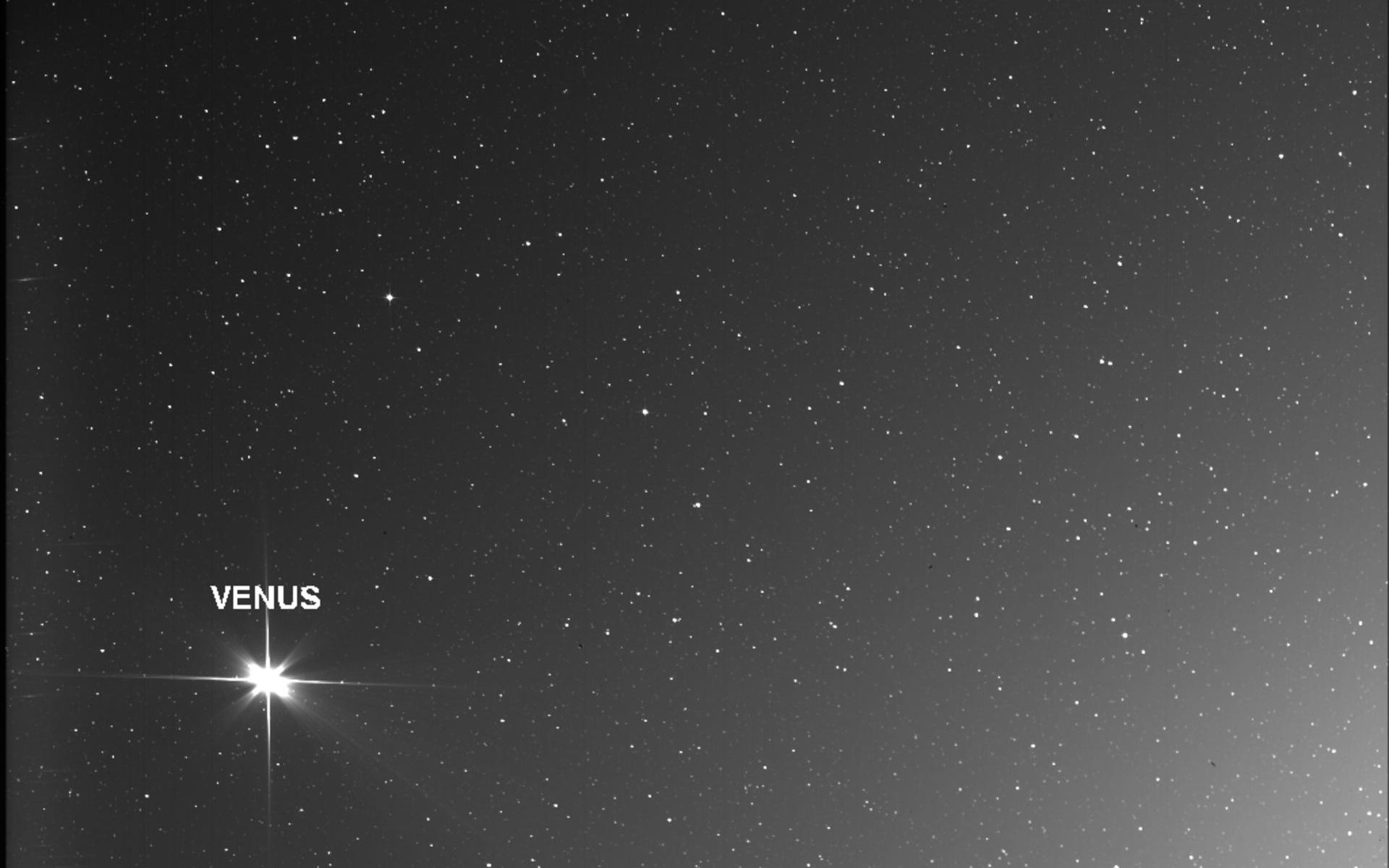
The Solar Orbiter spacecraft is heading towards the center of the Solar System, with the goal of capturing the closest images ever taken of our Sun. But during its flight, the spacecraft turned back to look towards home. It captured Venus, Earth, and Mars together, as seen from about 155.7 million miles (250.6 million kilometers) away.
Continue reading “Solar Orbiter Caught Venus, Earth and Mars in One of its Photos”Scientists Have Re-Analyzed Their Data and Still See a Signal of Phosphine at Venus. Just Less of it
In September, an international team announced that based on data obtained by the Atacama Millimeter-submillimeter Array (ALMA) in Chile and the James Clerk Maxwell Telescope (JCMT) in Hawaii, they had discovered phosphine gas (PH3) in the atmosphere of Venus. The news was met with its fair share of skepticism and controversy since phosphine is considered a possible indication of life (aka. a biosignature).
Shortly thereafter, a series of papers were published that questioned the observations and conclusions, with one team going as far as to say there was “no phosphine” in Venus’ atmosphere at all. Luckily, after re-analyzing the ALMA data, the team responsible for the original discovery concluded that there is indeed phosphine in the cloud tops of Venus – just not as much as they initially thought.
Continue reading “Scientists Have Re-Analyzed Their Data and Still See a Signal of Phosphine at Venus. Just Less of it”Venus Held Onto its Water Surprisingly Well During its History
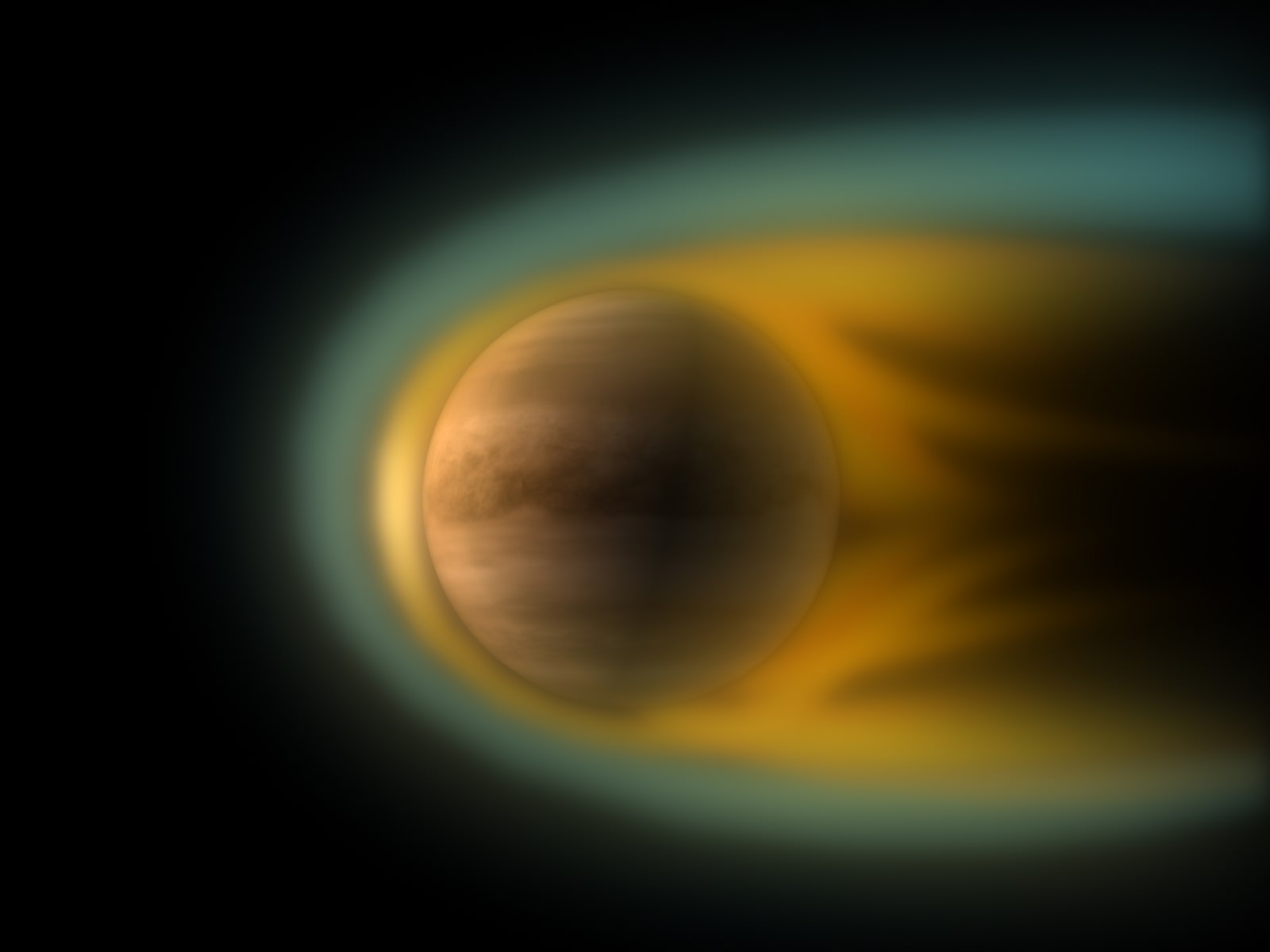
Named for the ancient goddess of fertility, the planet Venus could not be more hostile to life as we know it. Aside from being the hottest planet in the Solar System, Venus has also an atmosphere that is 92 times denser than Earth’s, and regularly experiences sulfuric acid rain. But as we’ve learned from multiple surveys, Venus was once a much milder climate and even had vast oceans on its surface.
For astronomers and geologists alike, the burning question is, how much of its water did Venus hold onto during this massive transition? According to research presented by Moa Persson of the Swedish Institute of Space Physics (IRF), Venus actually retained most of its water over the past 4 billion years. Contrary to what researchers previously thought, Venus lost only a small amount of its water to a runaway Greenhouse Effect.
Continue reading “Venus Held Onto its Water Surprisingly Well During its History”Astronomers Challenge Recent Findings About Venus. “No Statistically Significant Detection of Phosphine”

In September, a team of scientists reported finding phosphine in the upper atmosphere of Venus. Phosphine can be a biomarker and is here on Earth. But it’s also present on Jupiter, where it’s produced abiotically. The discovery led to conjecture about what kind of life might survive in Venus’ atmosphere, continually producing the easily-degraded phosphine.
The authors of that study were circumspect about their own results, saying that they hope someone can determine a source for the phosphine, other than life.
Now a new study says that the original phosphine detection is not statistically significant.
Continue reading “Astronomers Challenge Recent Findings About Venus. “No Statistically Significant Detection of Phosphine””Astronomers Report They’ve Detected the Amino Acid Glycine in the Atmosphere of Venus
Does it feel like all eyes are on Venus these days? The discovery of the potential biomarker phosphine in the planet’s upper atmosphere last month garnered a lot of attention, as it should. There’s still some uncertainty around what the phosphine discovery means, though.
Now a team of researchers claims they’ve discovered the amino acid glycine in Venus’ atmosphere.
Continue reading “Astronomers Report They’ve Detected the Amino Acid Glycine in the Atmosphere of Venus”Did Pioneer See Phosphine in the Clouds of Venus Decades Ago?
The discovery of phosphine in Venus’ atmosphere has generated a lot of interest. It has the potential to be a biosignature, though since the discovery, some researchers have thrown cold water on that idea.
But it looks, at least, like the discovery is real, and that one of NASA’s Pioneer spacecraft detected the elusive gas back in 1978. And though it’s not necessarily a biosignature, the authors of a new study think that we need to rethink the chemistry of Venus’ atmosphere.
Continue reading “Did Pioneer See Phosphine in the Clouds of Venus Decades Ago?”
